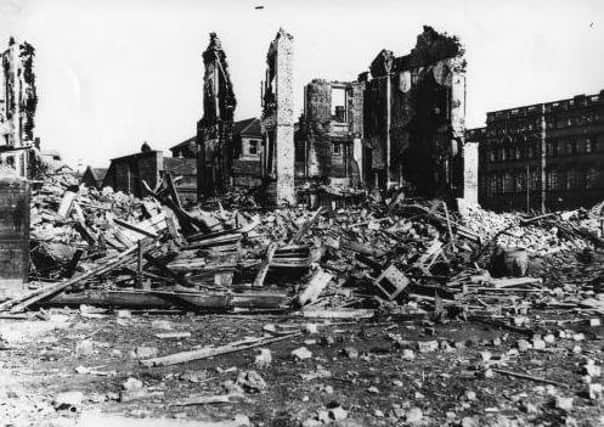Coronavirus: Blitz Spirit returns in our hour of need – Scotsman comment


The term “Blitz Spirit” conjures up images of people stoically enduring the mass bombing of cities during the Second World War – a campaign designed to break the fighting spirit of the British people but which instead only made people all the more determined to work together towards the shared goal of defeating the Nazis. There is, of course, a fair degree of myth-making involved in this and no-one should think it entirely reflects the reality of what actually happened.
However, it does contain more than a kernel of truth about the human condition. When faced with a grave and serious threat, the vast majority of people will pull together.
Advertisement
Hide AdAdvertisement
Hide AdNow a new study by psychologists has found similarities between people’s responses to the wartime bombing campaign and the Covid-19 pandemic.
Professor Edgar Jones said that, faced with the Blitz and the threat posed by the virus, “people often acted ahead of the government measures or recommendations”. They didn’t wait to be told what to do, but sought to take action off their own bat. The researchers also compared the wartime blackout and social distancing – measures that require widespread public co-operation – and found a sense of “everyone being in it together” was key. “It’s crucial to get people to buy into protecting the community and not just themselves,” said Professor Jones.
The study also noted failures to learn from comparable events overseas. Despite the declaration of war, many initially did not take precautions against the air-raid threat. And when the virus was raging in China, large public gatherings like Cheltenham Races were held with thousands happy to attend. Psychologically, the threat seemed distant. This may also have been true for our political leaders as they tried to assess the dangers and gradually faced up to the need to take the immense and difficult decision to shut down the economy.
But once they did do so, the public stoically rose to the challenge of protecting not just themselves but others from this deadly disease. The evidence is in the dramatic reduction in cases and deaths over the past months.
That’s worth remembering if ever you start to feel cynical about humanity. In times of trouble, most people will seek to do the right thing, try to help others, and pass a profound test of character with flying clours.
A message from the Editor:
Thank you for reading this article on our website. While I have your attention, I also have an important request to make of you.
With the coronavirus lockdown having a major impact on many of our advertisers - and consequently the revenue we receive - we are more reliant than ever on you taking out a digital subscription.
Subscribe to scotsman.com and enjoy unlimited access to Scottish news and information online and on our app. With a digital subscription, you can read more than 5 articles, see fewer ads, enjoy faster load times, and get access to exclusive newsletters and content. Visit www.scotsman.com/subscriptions now to sign up.
Advertisement
Hide AdAdvertisement
Hide AdOur journalism costs money and we rely on advertising, print and digital revenues to help to support them. By supporting us, we are able to support you in providing trusted, fact-checked content for this website.
Joy Yates
Editorial Director
Comments
Want to join the conversation? Please or to comment on this article.